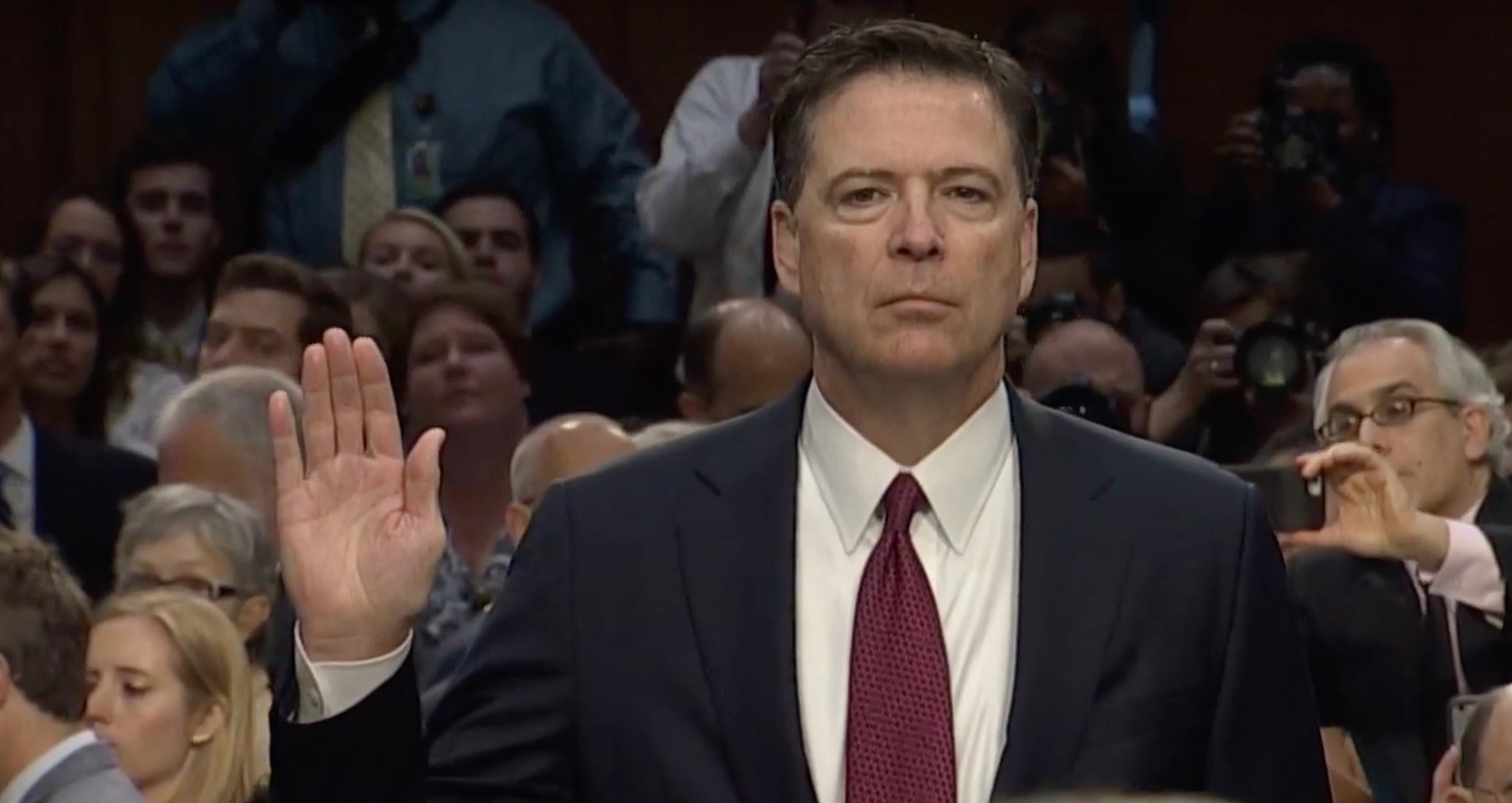
Comey’s comments and America’s lack of self-awareness
Former FBI head James Comey’s testimony on Thursday (June 8) before a Senate Intelligence Committee provides a fascinating, yet completely predictable, insight into America’s continued ability to sustain an impressive lack of self-awareness.
Russia’s proven attempts to influence the last U.S. election, abhorrent that it was, has created a public dialogue that concludes the United States has been subjected to one of the most dangerous intrusions upon its sovereignty. What’s lacking in this discussion is any appreciation among the political and media elite of America’s own long standing meddling in the elections and internal matters of other countries.
Some of the most remarkable comments from Comey came when he spoke of the dangers of a foreign power interfering in American society.
“We have this big messy wonderful country where we fight with each other all the time, but nobody tells us what to think, what to fight about, what to vote for except other Americans,” he said, adding that “we’re talking about a foreign government that using technical intrusion and lots of other methods tried to shape the way we think, we vote and how we act. That is a big deal.”
His well-articulated point is that the United States has the unconditional right to determine its own social structure without outside interference. The most dangerous thing possible would be if a foreign power tried to influence what Americans should think about; how their country should move into the future. Whether America considers other countries have that same right is open to question.
With impressive restraint it appears there will never be any acknowledgement that what America has done to other countries is far worse than what the Russians tried doing to them. The silence is not surprising; few countries have the ability to recognize similar crimes it attributes to others. America, however, has a particularly notable capacity to keep the blinders on despite the millions from Iran, Guatemala, Chile, Argentina, Panama, Viet Nam and dozens of other countries who could attest to America’s consistently destructive meddling in their internal affairs.
No greater example of the United States unrelenting inference in the affairs of others is the hostility it has shown against Cuba since the revolution triumphed in 1959. The Cubans would have no problem if the U.S. limited itself to only the “technical intrusions” the Russians have used. Instead, the island nation has been subjected to America’s most viscous attacks upon its sovereignty, including terrorism, anti-revolutionary propaganda, and an economic blockade unequaled in history. All in the effort to not just impact Cuba’s internal political processes — to determine how and what the Cubans should argue about — but to actually destroy the revolutionary society supported by the majority of its citizens. There is no greater example of a foreign power attempting to affect the sovereignty of another.
“They think this great experiment of ours is a threat to them,” Comey said in context to explain Russian motivations. Ironically, part of the United States initial hostility against Cuba was based on the fear the new revolutionary society may spread to other Latin American countries, representing an elementary threat to the United States.
Apparently the United States has never recognized that Cuba also has the right to determine its own system without a foreign power imposing its will on what they should be fighting about. Despite the thaw of the past two years, which Trump may yet rescind, the United States maintains the position of regime change against the Cuban government. Patriotism seems to be a relative concept depending on what side of the Florida straits you live.
It would be disingenuous to expect Comey, or anyone else from America’s ruling class, to identify the hypocrisy of Russia’s attempts compared to what the U.S. has done to so many others. They’ll never recognize it, but it is interesting to see how the inconsistencies of outrage function.
Keith Bolender is author of Voices from the Other Side (Pluto Press 2010) and Cuba Under Siege (Palgrave 2012).
Progreso Weekly authorizes the total or partial reproduction of the articles by our journalists, so long as the original source and the author are identified.

